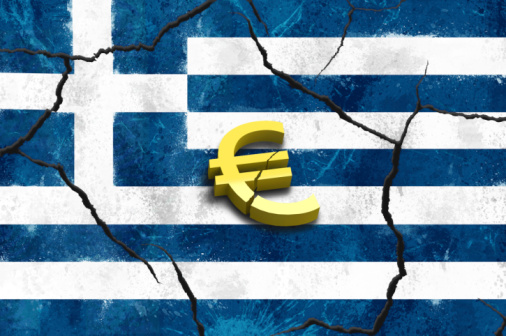Banking, finance, and taxes
Is Reopening Greek Banks Actually Bad News?
Published:
Last Updated:
If you have been watching the global financial news during any point of the past month, chances are high that the coverage of Greece may have become more than just overwhelming. This nation has systemic problems that go very deep, and its fate inside the European Union and inside of the euro currency remains up for debate. That being said, shouldn’t most market watchers assume that news of the Greek banks being set to reopen on Monday be interpreted as good news?
Greek banks reportedly will finally reopen on Monday, July 20, 2015. With Greece’s economy frozen down to 60 euros per day, with international businesses either unable to get products to Greece or refusing to send them, this seems like good news.
National Bank of Greece S.A. (NYSE: NBG) is one of the official trading proxies used by investors to judge the daily news flow out of Greece. If American depositary shares are up, things are viewed positively, and if the ADSs are down, then things are viewed negatively. But that now seems to be a matter up for debate, with Greece’s economy effectively shut down and with investors unsure how to price shares.
Having bank holidays that last more than a few days is far from normal economic behavior. A couple or few weeks is just a national embarrassment. Is it possible that the closure prevented a final run on the banks? Are there fears that once banks reopen that a run on the remaining banks becomes more likely?
National Bank of Greece ADSs were last seen down 4% at $1.12 on more than 22 million shares in New York trading, with less than an hour until Thursday’s close. Its 52-week range is $0.85 to $3.69. Again, reopening the banks might have seemed like better news than this. Unfortunately investors and the public may just have not figured out how to price anything in Greece.
ALSO READ: Countries With the Widest Gap Between the Rich and the Poor
Another trading barometer is the Global X FTSE Greece 20 ETF (NYSEMKT: GREK). This exchange traded fund may be trading more like a sentiment closed-end fund without an accurate barometer now. This happens in international markets when extreme unrest comes into play. It also happened to the Egyptian ETF in years past.
What is also interesting is that the Global X FTSE Greece 20 ETF is up two cents at $10.83 in late day trading on Thursday. This ETF has a 52-week trading range of $9.42 to $22.62.
Again, a lot remains up in the air regarding Greece. It turns out that the last vote is not a life-long lock-in. Some economists and strategists still see a “Grexit” anywhere from being possible to likely.
Another risk that simply cannot be ignored is that there is still a Greek bank nationalization risk, which would be a catastrophic outcome for investors in Greece. If the Syriza decided to nationalize the banks, what would stop them from nationalizing other assets?
Maybe there is another risk here that has to be considered. Regulators and politicians can say the banks are reopening, but what if they don’t actually get reopened? That is a risk, or has to at least be considered a possibility.
Greek politics is another wild card. What if Tsipras resigns, or what if a confidence vote went against him in the weeks or months ahead? Suddenly a new anti-euro vote could bring the problems of recent weeks right back into the fold. This is something that has to be considered as we have noted previously.
ALSO READ: Can Investors Find Value in Greece?
Below is an image showing the words from the CIA World Factbook describing Greece’s economy, which actually was a five-year economic history of bailouts and renegotiating with Greece and its creditors. Many investors and creditors, as well as European Union and European Central Bank officials, still likely have to worry about Greece in the days, weeks, months and perhaps even years ahead.
After two decades of reviewing financial products I haven’t seen anything like this. Credit card companies are at war, handing out free rewards and benefits to win the best customers.
A good cash back card can be worth thousands of dollars a year in free money, not to mention other perks like travel, insurance, and access to fancy lounges.
Our top pick today pays up to 5% cash back, a $200 bonus on top, and $0 annual fee. Click here to apply before they stop offering rewards this generous.
Flywheel Publishing has partnered with CardRatings for our coverage of credit card products. Flywheel Publishing and CardRatings may receive a commission from card issuers.
Thank you for reading! Have some feedback for us?
Contact the 24/7 Wall St. editorial team.